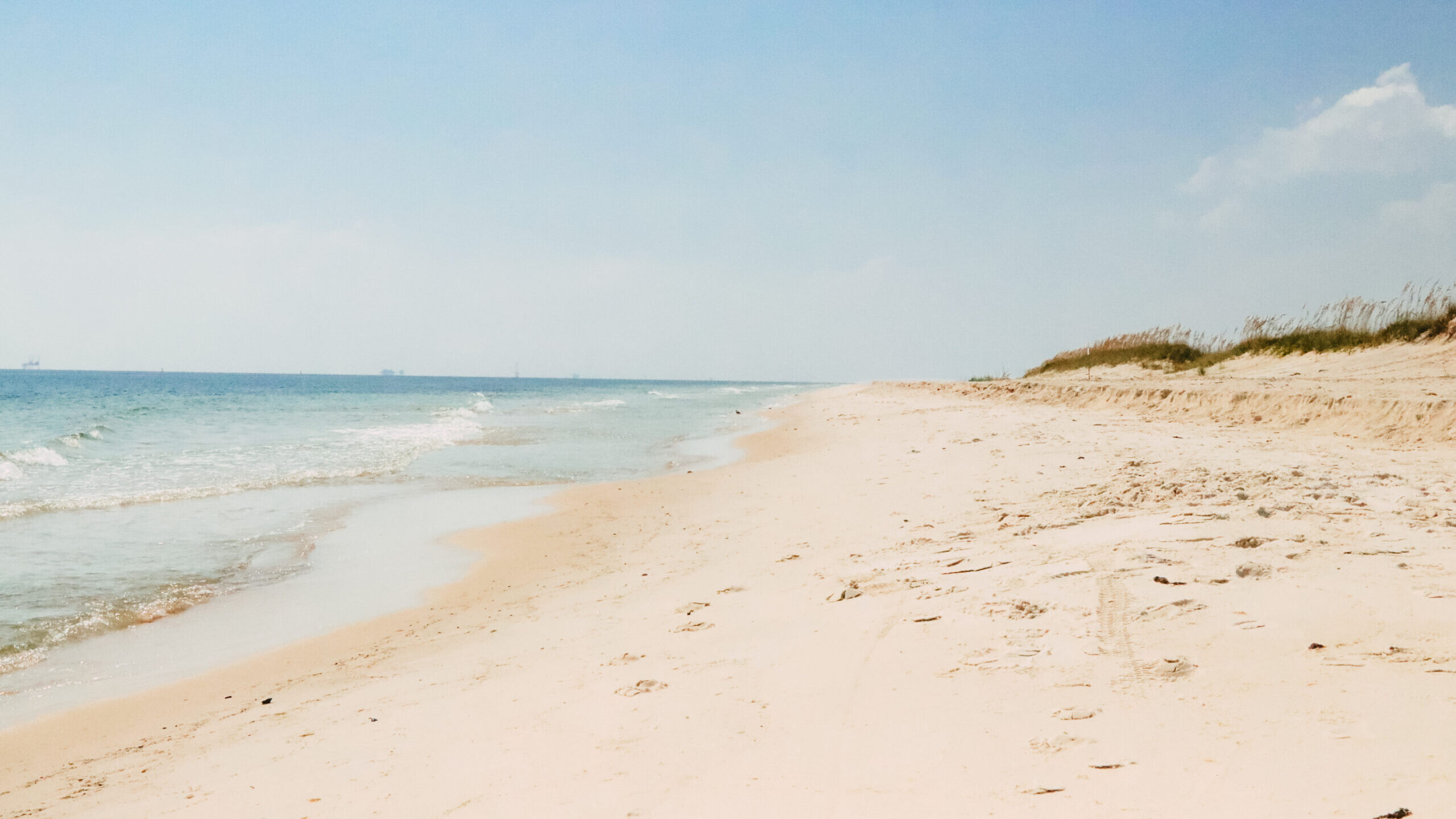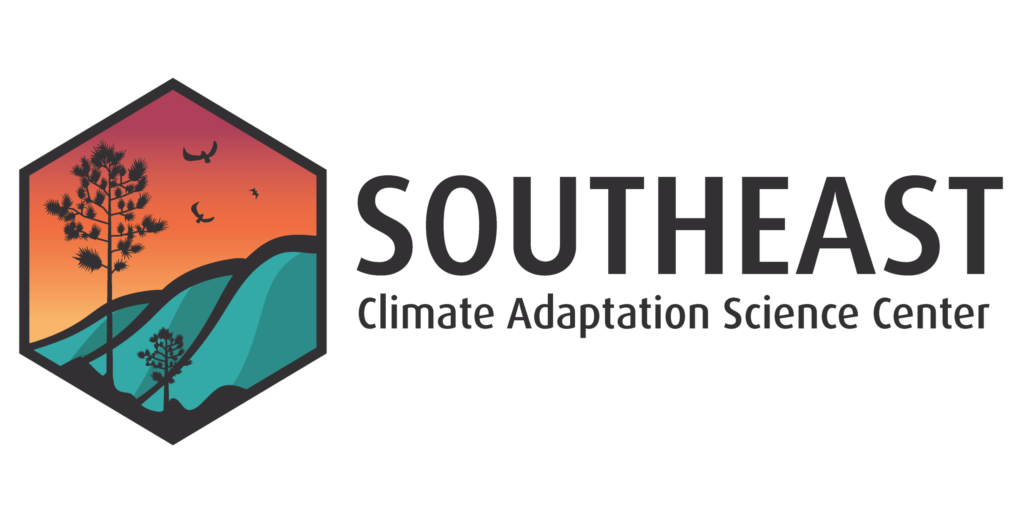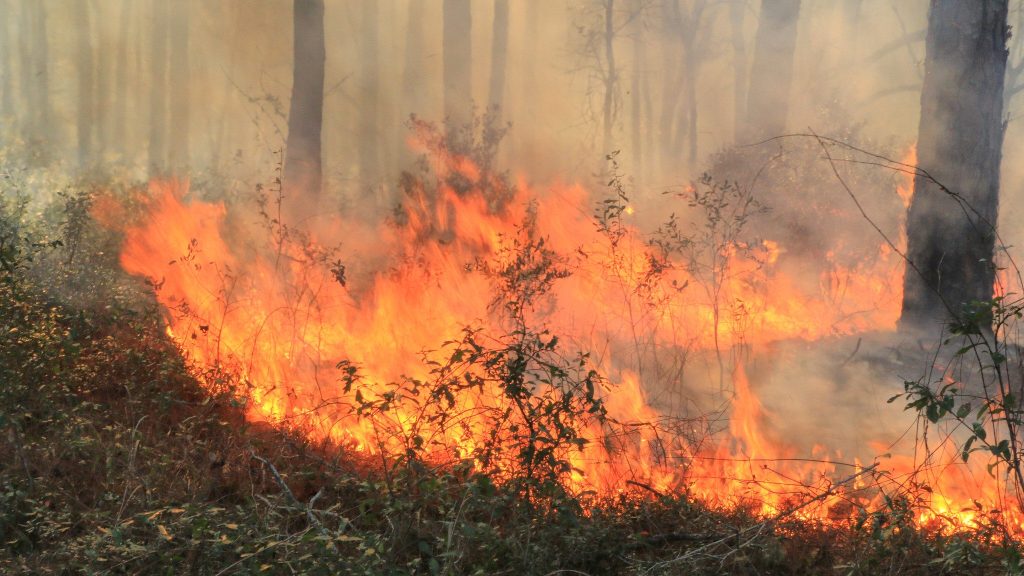July 2023 Newsletter


July 2023 Newsletter
Welcome to the Southeast Climate Adaptation Science Center’s July 2023 Newsletter.
For news and upcoming events related to the Southeast Climate Adaptation Science Center, subscribe to our monthly newsletter
SE CASC News | Resources | Publications | Tribal News | Partner News | Webinars | Events | Opportunities

Southeast Climate Adaptation Science Center News
Join the SE CASC and SECAS jointly sponsored science seminar, Scaling up Urban Growth Projections with FUTURES, by Anna Petrasova (NCSU), July 20, 10AM ET. Learn more and register.
We are pleased to announce our 2023-2024 Global Change Research Fellows, representing multiple colleges and disciplines across NC State. See the announcement.
2015-16 Global Change Fellow Georgina Sanchez, Research Ecologist Adam Terando, and Faculty Affiliate Ross Meentemeyer are co-authors to two data releases resulting from SE CASC project, Improving Scenarios of Future Patterns of Urbanization, Climate Adaptation, and Landscape Change in the Southeast. Read a summary.
Global Change Fellow Erin Eichenberger received two grant awards for her work with the rare southeastern prairie plant: Catherine H. Beattie Fellowship and Tom and Bruce Shinn Fund.
Research Ecologists Mitch Eaton and Adam Terando are co-authors to Climate change and the global redistribution of biodiversity: substantial variation in empirical support for expected range shifts. Read a summary.
SE CASC Researcher Wesley Boone is lead author to Minimal shift of eastern wild turkey nesting phenology associated with projected climate change. Faculty Affiliates Krishna Pacifici and Christopher Moorman along with Research Ecologist Adam Terando are co-authors. Read the news release.
CAP Fellow Reetam Majumder and Faculty Affiliate Brian Reich are co-authors to A deep learning synthetic likelihood approximation of a non-stationary spatial model for extreme streamflow forecasting.
Faculty Affiliates Erin Seekamp and Marcelo Ardon were featured in the Coastal Review news article, Ghost forest education focal point of public science project.
Faculty Affiliate Jennifer Costanza is co-author to Future exposure of forest ecosystems to multi-year drought in the United States.
Conservation Corridor: Protected areas are unlikely to act as stepping stones under climate change
Project Spotlight
Future of Fire: Development of an Early Warning System to Identify Changing Prescribed Burn Opportunities Across Southeast US Fire-Adapted Habitats

Frequent, low-intensity wildfires were once widespread across the Southeast US, which led to a reduction in unchecked vegetation growth that provided fuel for high-intensity fires. To aid decision-makers in meeting objectives of fire-risk reduction and habitat improvement, this project will develop a prototype model to characterize short- and long-term risks induced by climate change for prescribed fire managers in the Southeast US. This project’s state-of-the-science methods involve three objectives: characterize the ‘fail-states’ where managers should avoid the use of prescribed fire, characterize the risk of experiencing these ‘fail-states’, and characterize extreme wildfire risk based on long-term climate model projections. When combined with updated model projections of extreme wildfires, this research will provide a comprehensive assessment of climate-related fire risk for the region. Learn more.
Resources
Climate Change in the American Mind: Beliefs & Attitudes, Spring 2023 is a joint program of the Yale Project on Climate Change Communication and the George Mason University Center for Climate Change Communication. Learn more.
Climate Engine is a powerful cloud solution that has enabled NOAA to rapidly create and disseminate critical climate and drought information. Learn more.
Coastal Science Navigator serves as a gateway to USGS Coastal Change Hazards resources and assists users in finding products and tools that will meet their specific needs. Learn more.
Flood Inundation Mapper. USGS created this tool for users to explore the full set of inundation maps that shows where flooding would occur given a selected stream condition. Learn more.
Responding to Climate-Amplified Extreme Weather Events. The National Adaptation Forum hosted a series of webinars featuring presentations focused on innovative approaches for minimizing the impacts of extreme storms. Learn more.
Rural Capacity Map identifies communities where investments in staffing and expertise are needed to support infrastructure and climate resilience projects. Learn more.
In the Media
A Secret Key to Saving Species Is Blowing in the Wind | Wired
Longleaf pine forests in Alabama are making a comeback—thanks to fire | Popular Science
Coastal ecosystems are a net greenhouse gas sink, new research shows | Phys.org
Calculating the Economic and Climatic Benefits of Mangroves | AZO Cleantech
USACE takes new approach to projects in U.S. Virgin Islands and Puerto Rico | USACE

Notable Publications
Salinification of Coastal Wetlands and Freshwater Management to Support Resilience
Climate change is posing unprecedented challenges to wetland management and remediation. Historical land use change data no longer provides enough information to appropriately adapt to this rapidly changing climate. Coastal wetlands are becoming more salinified, thus requiring new management approaches for these systems. This paper aims to describe inland wetland remediation techniques that can be applied to increase freshwater delivery to coastal wetlands experiencing salinification. The remediation of past land-use damage on coast to reduce salinity stress can help freshwater species maximize their resilience, growth, and peat-building potential. Such management approaches can improve these coastal wetlands’ overall resilience to climate change. By limiting water salinization through improving freshwater delivery and remediating past land-use change, coastal and inland wetlands can function as valuable refugia as the climate continues to change. Link to article.
Perspectives on climate information use in the Caribbean
Oftentimes research on climate change impacts are limited in small and low-income regions. This paper investigated Caribbean-focused perspectives on the demand for and use of climate information within the area. Twenty-six semi-structured interviews were conducted with region-focused experts in climate adaptation, disaster risk reduction, and resilience focused initiative and institutions. Results from the analysis of these interviews revealed the presence of monetary barriers and identified the need for certain enabling and catalyzing conditions for the effective use of climate information. These conditions consist of the need for island and sector specific climate information, donors, human resource capacity, and powerful policy and legislative voices. These insights can contribute to more effective deployment of climate information to promote resilience in the vulnerable region of the Caribbean. Link to article.
Species Preservation in the Face of Novel Threats: Cultural, Ecological, and Operational Considerations for Preserving Tree Species in the Context of Non-Indigenous Insects and Pathogens
One of the main risks to healthy standing forests are pests. Non-Indigenous insects and pathogens (NIIP) are responsible for the functional extinction of numerous tree species over the past century. Under such rapidly changing conditions, foresters are forced to quickly adapt their management plans to consider the economic losses associated with the elimination of valuable tree species. This paper argues for a renewed focus on applying integrated pest management and adaptive strategies to sustain the cultural and ecological values of these tree species for future generations. Researchers developed a framework to adapt to NIIP based on three interrelated components: preservation value, preservation approach, and preservation strategy. This framework will help guide preservation approaches to protect threatened species and their associated values at stand and landscape scales. Link to article.
Extensive global wetland loss over the past three centuries
Wetland drainage is an unfortunate common practice affecting greenhouse gas fluxes, flood control, nutrient cycling, and biodiversity. However, the total global extent of natural wetland loss remains unknown. This paper reconstructs the spatial distribution and timing of wetland loss between 1700 and 2020. National and subnational records of drainage and conversion with land-use maps and simulated wetland extents were used to explore the conversion of wetlands to seven human land uses. It was estimated that 3.4 million km2 of inland wetlands have been lost since 1700 primarily due to cropland conversions. This equates to a 21% net loss of global wetland area, a value lower than previously acquired from extrapolations of data disproportionately from high-loss regions. Europe, the United States, and China have experienced the highest concentration of wetland loss with a significant uptick in the mid-twentieth century. Through studying the timing and land-use drivers of global wetland loss, resource managers now have an improved historical baseline to guide assessment of wetland loss impact on Earth system processes, conservation planning to protect remaining wetlands, and prioritization of sites for wetland restoration. Link to article.
Locating Neighborhood Displacement Risks to Climate Gentrification Pressures in Three Coastal Counties in Florida
Sea-level rise poses a major risk to coastal communities. As encroaching waters creep onto residents’ homes, many will be forced to migrate inward. Inland communities with less exposure to climate change impacts will then need to accommodate for an influx of residents. This paper uses three Florida counties (Duval, Pinellas, and Miami-Dade) as case studies employing publicly available data. The principal components analysis generated housing, socioeconomic, and demographic components associated with neighborhoods predisposed to the risks of secondary residential displacement. Six components were identified for Duval and Miami-Dade counties and seven components were identified for Pinellas county. Displacement risk characterization determined interrelationships between neighborhood socioeconomic and biophysical risk and identified regions at higher risk of secondary displacement. Second-order displacement was identified in 30%, 25%, and 20% of Duval, Miami-Dade, and Pinellas counties, respectively. This research offers a framework for identifying neighborhoods predisposed to climate gentrification due to sea-level rise. Link to article.

Tribal News
Visit USET Climate Change Headlines for updates on information regarding climate science events, funding opportunities, best practices, and highlights from across the USET region.
AGU is accepting abstracts for the Indigenous Science to Action session during the AGU23 Conference. Learn more and submit your abstract by Aug. 2.
USDA is requesting nominations for membership to the Tribal Advisory Committee. Learn more and submit nominations by Aug. 14.
NOAA announced a grant in Tribal Engagement in Regional Ocean Partnership Priorities. Learn more and apply by Aug. 30.
Registration is open for the 2023 Tribal Climate and Health Summit hosted in California from Nov. 8-9. Learn more and register here.

Regional Partner News
SECAS: Future “collabs” between SARP and SECAS
Audubon and Partners Launch Community-driven Climate Projects in Three States
US Forest Service recently updated their Forest Service Climate Risk Viewer.
FEMA Allocates Millions to Restore Coral Reefs in the Coast of San Juan
NOAA: NOAA and NCEAS Announce Support for Synthesis Science to Study Fisheries in the Gulf of Mexico

Webinars
Find more upcoming events in our calendar.
Jul. 24 | 2pm-3pm | Meet the NAFWS Invasive Species Team Webinar
Jul. 25 | 10am-11am | NOAA NIDIS Southeast Climate Monthly Webinar
Jul. 27 | 10am-11am | SCDRP Partnership Meeting
Aug. 3 | 9am-10am | Climate and Conservation Coffee
Aug. 15 | 2pm-3:30pm | NI-WB – Seven Best Practices for Risk Communication Registration
Aug. 17 | 10am-11am | Third Thursday Web Forum: Learn how to advocate for parks using the ParkServe mapping application
Upcoming Events
Aug. 5 | Teaching Climate Science in Oklahoma | Norman, OK
Aug. 8-10 | America’s Grasslands Conference | Cheyenne, WY
Aug. 14-16 | Midwest CASC 2023 Annual Gathering | Indianapolis, IN
Oct. 11-15 | HBCU Climate Conference | New Orleans, LA
Oct. 23-27 | 2023 NADP Fall Meeting & Scientific Symposium | Madison, WI
Oct. 26-28 | National Diversity in STEM Conference | Portland, OR
Nov. 13-15 | Promoting Indigenous Research Leadership (PIRL) Workshop | Tempe, AZ

Opportunities
Student Announcements
North Carolina Sea Grant and North Carolina Space Grant are offering a special joint funding opportunity for graduate student research on ghost forests. Learn more and submit your proposal by Aug. 11, 2023.
Council on Environmental Quality is hosting an Internship Program covering a range of environmental policies. Learn more and apply by Oct. 27.
NOAA Office for Coastal Management is offering Margaret A. Davidson Graduate Fellowships for the National Estuarine Research Reserve System. Learn more and apply by Dec. 4.
Hiring Announcements
Nova Southeastern University is accepting applications for the 2024-2026 Susan L. Williams National Coral Reef Management Fellowship. Learn more and apply by July 20.
University of Colorado Boulder’s Department of Ecology & Evolutionary Biology seeks a Postdoctoral Research Associate focusing on climate-adapted wildfire management. Learn more and apply by July 20.
Virginia Conservation Network is seeking a Campaign & Policy Manager for Clean Energy & Climate Justice. Learn more and apply by July 21.
ITEP Tribes and Climate Change Program has opened a Community Program Coordinator Sr. – International Programming position. Learn more and apply by July 24.
UGA Marine Extension and Georgia Sea Grant is hiring a Coastal Community Resilience Specialist. All applications received by Aug. 1 will be assured consideration. More information.
Society for Conservation Biology is accepting applications for the David H. Smith Conservation Research Fellowship Program. Learn more and apply by Sept. 15.
Miami Climate Alliance is hiring for two remote positions based in South Florida: Communications Strategist and Membership & Outreach Coordinator.
NC Coastal Reserve is hiring a Natural Resource Resilience Specialist. Learn more.
NFWF is offering two coastal resilience positions in Washington, DC: Staff Scientist and Manager.
St. Andrew and St. Joseph Bays Estuary Program is hiring an Outreach Specialist. Learn more.
Funding Opportunities
NFWF is soliciting proposals for the ConocoPhillips SPIRIT of Conservation Program 2023. Apply by July 26.
Department of Commerce and NOAA recently announced the National Integrated Heat Health Information System FY2024 Funding Opportunity. Learn more and submit your letter of intent by Aug. 14.
NOAA Climate Program announced the opening of its Fiscal Year 2024 grant competitions. Letters of intent are due starting August 18. Full applications for all competitions are due Nov. 17. Learn more.
NOAA is offering the Climate Resilience Regional Challenge program to fund collaborative approaches to coastal resilience. Learn more and submit a letter of intent by Aug. 21.
EPA is seeking applications for community-based scientific research to assess cumulative impacts from multiple combined and interacting environmental stressors upon human health in underserved communities. Learn more and apply by Aug. 31.
FWS is offering a grant in National Fire Plan-Wildland Urban Interface Community Fire Assistance. Learn more and apply by Sept. 1.
Miscellaneous
NOAA’s Office for Coastal Management is seeking technical reviewers for three competitive grant programs. Register here by July 21.
EPA is collecting applications now to join the National Environmental Youth Advisory Council (NEYAC). Learn more and apply by Aug. 22.
NADP is requesting abstracts for their 2023 Fall Meeting and Scientific Symposium. Learn more and submit an abstract by Aug. 25.
NCER 2024 is requesting abstracts for talks and posters during the conference. Learn more and submit an abstract by Sept. 1.
- Categories:
